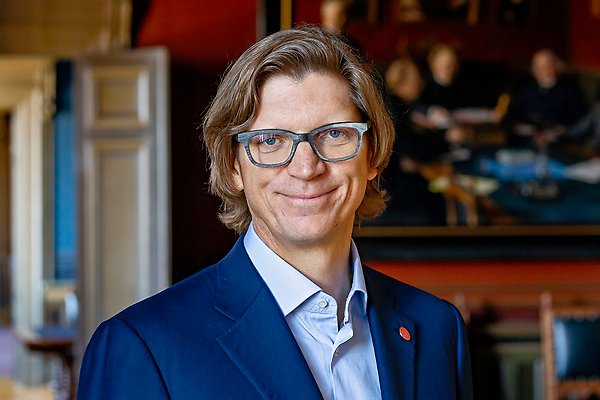Entrepreneur Niklas Zennström:
"I want to help solve climate problems"

Entrepreneur and philanthropist Niklas Zennström aspires to help solve global climate problems and is convinced that more research and education are essential to succeed. His initiative to establish a ten-year visiting professorship in climate leadership at Uppsala University combines these two ambitions.
Niklas Zennström has followed the evolution of the professorship, to which Uppsala University invites a new visiting professor every year or every second year, with great interest.
“I’m very pleased with the way the professorship has developed. The professors have been very successful, both in their own research and in involving students and researchers at the department. It’s tremendously important to influence students, only then can you achieve a large-scale impact. The ripples spread.”
Zennström has a double degree from Uppsala University, in engineering physics and economics. After graduating he achieved fame as the founder of Skype, where he was CEO until 2007. He now runs Atomico, a firm that invests in the technology sector, as well as Zennström Philanthropies, which supports climate research and entrepreneurship activities.
Zennström has taken an active interest in sustainable development and environmental issues for a long time. The recent wave of demonstrations on climate and environmental issues bears testimony to a growing awareness.
“I think the people driving this are mainly young people who are worried. It’s their future that’s at stake, after all. Having said that, purely economically and technically speaking, there are now better prospects of finding solutions. One interesting sign of the times is that many entrepreneurs today think about the climate when considering which problems to tackle and what sort of businesses to build,” Zennström says.
“They invest in new technology and new types of products but also realise that some of these companies can be financially successful. Alongside this, we see investors who recognise that in the long term, it’s much better to invest in renewable energy than in energy that emits carbon dioxide.”
Zennström’s company Atomico has invested in many companies whose business idea is to provide products and services that use less energy or change people’s behaviour around transport and food.
“We see this as a really good investment that we can earn money from, while contributing to a better environment.”
For Zennström, investing in research and education is just as natural as investing in growing companies. As he sees it, these are two different ways of reaching the same goal – a more sustainable society.
“Education is the best long-term investment a society can make. Better education and more research improve the knowledge base and lay the foundation for innovations and for entrepreneurs who use science and technology to solve problems. All these things are interconnected and it has been very important for me to be involved in all the different dimensions.”
Zennström likes getting out and meeting students, and wants to encourage them to choose entrepreneurship as a profession.
“In a way, new entrepreneurs are in a better position to solve climate and environmental problems than established companies, which have a vested interest in carrying on in the same old way,” Zennström reasons. “I’m convinced that the need for climate-neutral solutions will grow over the next ten years. It has to grow.”
This means there are also great opportunities for students and researchers at the University, particularly young people who have the future on their side.
“It’s rewarding in career terms, but also because you are helping to create a positive solution. It’s also a good idea to combine computer science, biology or medicine with energy. Uppsala University offers excellent conditions for doing this, with all its different faculties. There are opportunities here for interdisciplinary research and entrepreneurial thinking, which make it possible to get involved and have a positive influence.”
